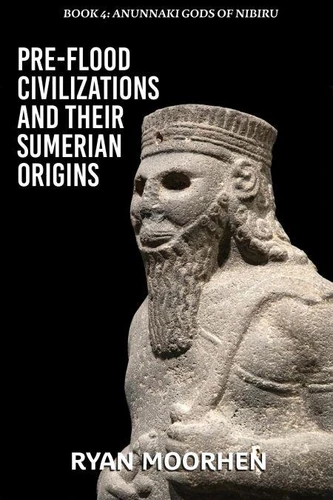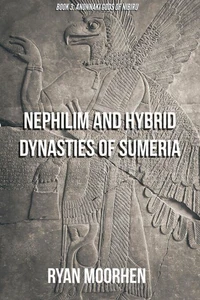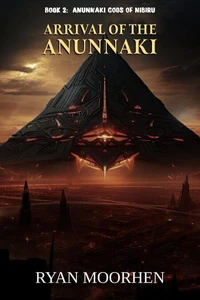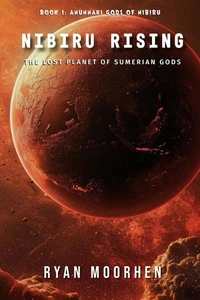Pre - Flood Civilizations and Their Sumerian Origins. Anunnaki Gods of Nibiru, #4
Par :Nouveauté
Formats :
Disponible dans votre compte client Decitre ou Furet du Nord dès validation de votre commande. Le format ePub est :
- Compatible avec une lecture sur My Vivlio (smartphone, tablette, ordinateur)
- Compatible avec une lecture sur liseuses Vivlio
- Pour les liseuses autres que Vivlio, vous devez utiliser le logiciel Adobe Digital Edition. Non compatible avec la lecture sur les liseuses Kindle, Remarkable et Sony
 , qui est-ce ?
, qui est-ce ?Notre partenaire de plateforme de lecture numérique où vous retrouverez l'ensemble de vos ebooks gratuitement
Pour en savoir plus sur nos ebooks, consultez notre aide en ligne ici
- FormatePub
- ISBN8231981403
- EAN9798231981403
- Date de parution30/08/2025
- Protection num.pas de protection
- Infos supplémentairesepub
- ÉditeurWalzone Press
Résumé
Book 4: Pre-Flood Civilizations and the Sumerian Origins plunges readers deep into the oldest myths and memories of humanity, where history, theology, and cosmic mathematics intertwine. At its heart stands the Sumerian King List, a document that recounts the reigns of antediluvian kings who ruled not for decades but for tens of thousands of years. Their extraordinary longevity, totaling 432, 000 years, transforms political history into a cosmic drama-an age when kingship itself "descended from heaven" and human order was bound directly to the divine.
This volume explores the blurred line between myth and memory. From the first city of Eridu-seat of the god Enki and the cradle of civilization-to Shuruppak and the flood traditions that echo through Mesopotamia, the text shows how ancient peoples anchored fragile societies in eternal rhythms. It examines how reign lengths were tied to astronomical cycles, how myths of Alulim, En-men-dur-ana, and Ubara-Tutu may conceal dim memories of real rulers, and how the theology of divine kingship legitimized authority while binding it to cosmic law.
Comparisons with Genesis, Hindu yugas, and global flood traditions reveal a shared human impulse to structure time through sacred numbers and archetypal rulers. Richly weaving archaeology, mythology, and comparative cosmology, this book is more than an analysis of ancient texts-it is a meditation on how civilizations conceived of eternity, decline, catastrophe, and renewal. It speaks to the weight of time, the resilience of kingship, and the enduring human need to find meaning in these cycles of history.
This volume explores the blurred line between myth and memory. From the first city of Eridu-seat of the god Enki and the cradle of civilization-to Shuruppak and the flood traditions that echo through Mesopotamia, the text shows how ancient peoples anchored fragile societies in eternal rhythms. It examines how reign lengths were tied to astronomical cycles, how myths of Alulim, En-men-dur-ana, and Ubara-Tutu may conceal dim memories of real rulers, and how the theology of divine kingship legitimized authority while binding it to cosmic law.
Comparisons with Genesis, Hindu yugas, and global flood traditions reveal a shared human impulse to structure time through sacred numbers and archetypal rulers. Richly weaving archaeology, mythology, and comparative cosmology, this book is more than an analysis of ancient texts-it is a meditation on how civilizations conceived of eternity, decline, catastrophe, and renewal. It speaks to the weight of time, the resilience of kingship, and the enduring human need to find meaning in these cycles of history.
Book 4: Pre-Flood Civilizations and the Sumerian Origins plunges readers deep into the oldest myths and memories of humanity, where history, theology, and cosmic mathematics intertwine. At its heart stands the Sumerian King List, a document that recounts the reigns of antediluvian kings who ruled not for decades but for tens of thousands of years. Their extraordinary longevity, totaling 432, 000 years, transforms political history into a cosmic drama-an age when kingship itself "descended from heaven" and human order was bound directly to the divine.
This volume explores the blurred line between myth and memory. From the first city of Eridu-seat of the god Enki and the cradle of civilization-to Shuruppak and the flood traditions that echo through Mesopotamia, the text shows how ancient peoples anchored fragile societies in eternal rhythms. It examines how reign lengths were tied to astronomical cycles, how myths of Alulim, En-men-dur-ana, and Ubara-Tutu may conceal dim memories of real rulers, and how the theology of divine kingship legitimized authority while binding it to cosmic law.
Comparisons with Genesis, Hindu yugas, and global flood traditions reveal a shared human impulse to structure time through sacred numbers and archetypal rulers. Richly weaving archaeology, mythology, and comparative cosmology, this book is more than an analysis of ancient texts-it is a meditation on how civilizations conceived of eternity, decline, catastrophe, and renewal. It speaks to the weight of time, the resilience of kingship, and the enduring human need to find meaning in these cycles of history.
This volume explores the blurred line between myth and memory. From the first city of Eridu-seat of the god Enki and the cradle of civilization-to Shuruppak and the flood traditions that echo through Mesopotamia, the text shows how ancient peoples anchored fragile societies in eternal rhythms. It examines how reign lengths were tied to astronomical cycles, how myths of Alulim, En-men-dur-ana, and Ubara-Tutu may conceal dim memories of real rulers, and how the theology of divine kingship legitimized authority while binding it to cosmic law.
Comparisons with Genesis, Hindu yugas, and global flood traditions reveal a shared human impulse to structure time through sacred numbers and archetypal rulers. Richly weaving archaeology, mythology, and comparative cosmology, this book is more than an analysis of ancient texts-it is a meditation on how civilizations conceived of eternity, decline, catastrophe, and renewal. It speaks to the weight of time, the resilience of kingship, and the enduring human need to find meaning in these cycles of history.


















